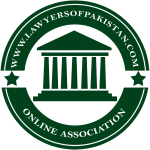In Pakistan, the laws governing nuisance can vary depending on the specific jurisdiction and the nature of the nuisance. The primary legal provisions related to nuisance can be found in the following laws:
1. The Pakistan Penal Code (PPC): The PPC contains provisions related to public nuisance under Section 268. It states that a person is guilty of a public nuisance if they do any act or illegal omission which causes any common injury, danger, or annoyance to the public or to the people in general who dwell or occupy property in the vicinity.
2. The Code of Civil Procedure (CPC): The CPC provides a mechanism for initiating civil proceedings to seek remedies for nuisance. Under the CPC, a person affected by a nuisance can file a civil lawsuit in the appropriate civil court seeking injunctive relief and compensation for damages suffered due to the nuisance.
3. Local Government Laws: Different provinces and local governments in Pakistan have their own local government laws that may contain provisions related to the regulation and control of nuisances. These laws may empower local authorities to take action against nuisances within their jurisdiction.
4. Environmental Protection Laws: Pakistan has several environmental protection laws that address various aspects of environmental nuisances. These laws may cover issues such as air pollution, water pollution, noise pollution, waste management, and other forms of environmental nuisances. For instance, the Pakistan Environmental Protection Act, 1997 provides mechanisms for addressing environmental nuisances and establishes the Pakistan Environmental Protection Agency (Pak-EPA) as the regulatory authority.
It is important to note that the interpretation and application of these laws can vary depending on the specific circumstances and the court’s interpretation. Additionally, local regulations and bylaws may also apply in specific jurisdictions. Therefore, it is advisable to consult with a lawyer who specializes in environmental or civil law to understand the specific laws and regulations applicable to your particular situation and jurisdiction.
Section 91 of the Code of Civil Procedure (CPC) in Pakistan can potentially be invoked in certain cases to seek relief related to a nuisance. Section 91 allows any person to apply to the court for an order directing any other person to produce any document or to furnish information that may be necessary for the purpose of any inquiry, trial, or other proceeding under the CPC.
In the context of a nuisance case, Section 91 may be relevant if you require the production of specific documents or information from a party involved in the nuisance. For example, you may seek the production of documents that establish the extent or nature of the nuisance, or any documents related to the ownership or control of the property causing the nuisance.
However, it’s important to note that Section 91 is procedural in nature and primarily pertains to the production of documents or information. It may not provide a direct remedy or relief for addressing the nuisance itself. To obtain relief or remedies for a nuisance, it would be more appropriate to rely on the substantive provisions of the law, such as seeking injunctive relief, damages, or compensation through a civil lawsuit under the relevant provisions of the CPC or other applicable laws.
To determine the specific applicability and relevance of Section 91 in your nuisance case, it is advisable to consult with a lawyer who specializes in civil law and is familiar with the specific facts and circumstances of your case. They will be able to provide you with accurate advice based on the current legal framework in Pakistan.
In a nuisance case in Pakistan, you can consider filing a civil lawsuit seeking remedies and relief under the following provisions:
1. Specific Relief Act, 1877: This act provides a legal framework for obtaining specific remedies in civil matters. In a nuisance case, you may seek injunctive relief, either temporary or permanent, to restrain the responsible party from continuing the activity causing the nuisance. Section 54 of the Specific Relief Act allows the court to grant an injunction to prevent the commission or continuance of a wrongful act that would cause injury to the plaintiff.
2. Code of Civil Procedure, 1908: The Code of Civil Procedure (CPC) governs the procedure for civil lawsuits in Pakistan. Under the CPC, you can file a civil suit in the appropriate civil court seeking remedies for nuisance. You may seek damages or compensation for the harm caused by the nuisance, as well as an injunction to restrain the continuation of the nuisance. Various sections of the CPC, such as Section 9 (jurisdiction of civil courts), Section 38 (injunctions), and Section 39 (temporary injunctions), may be relevant in a nuisance case.
3. Common Law Principles: In addition to statutory provisions, common law principles may also be applicable in nuisance cases. The court may consider legal precedents, case law, and principles of equity to determine liability and appropriate remedies. The principles of public and private nuisance, reasonableness, and balancing of interests may be taken into account in assessing the claim.
It’s important to consult with a lawyer who specializes in civil litigation to evaluate the specific circumstances of your case and determine the most appropriate legal provisions to rely upon. They will guide you through the legal process, including filing the lawsuit, presenting evidence, and advocating for your rights to obtain the desired remedies and relief for the nuisance you have experienced.

